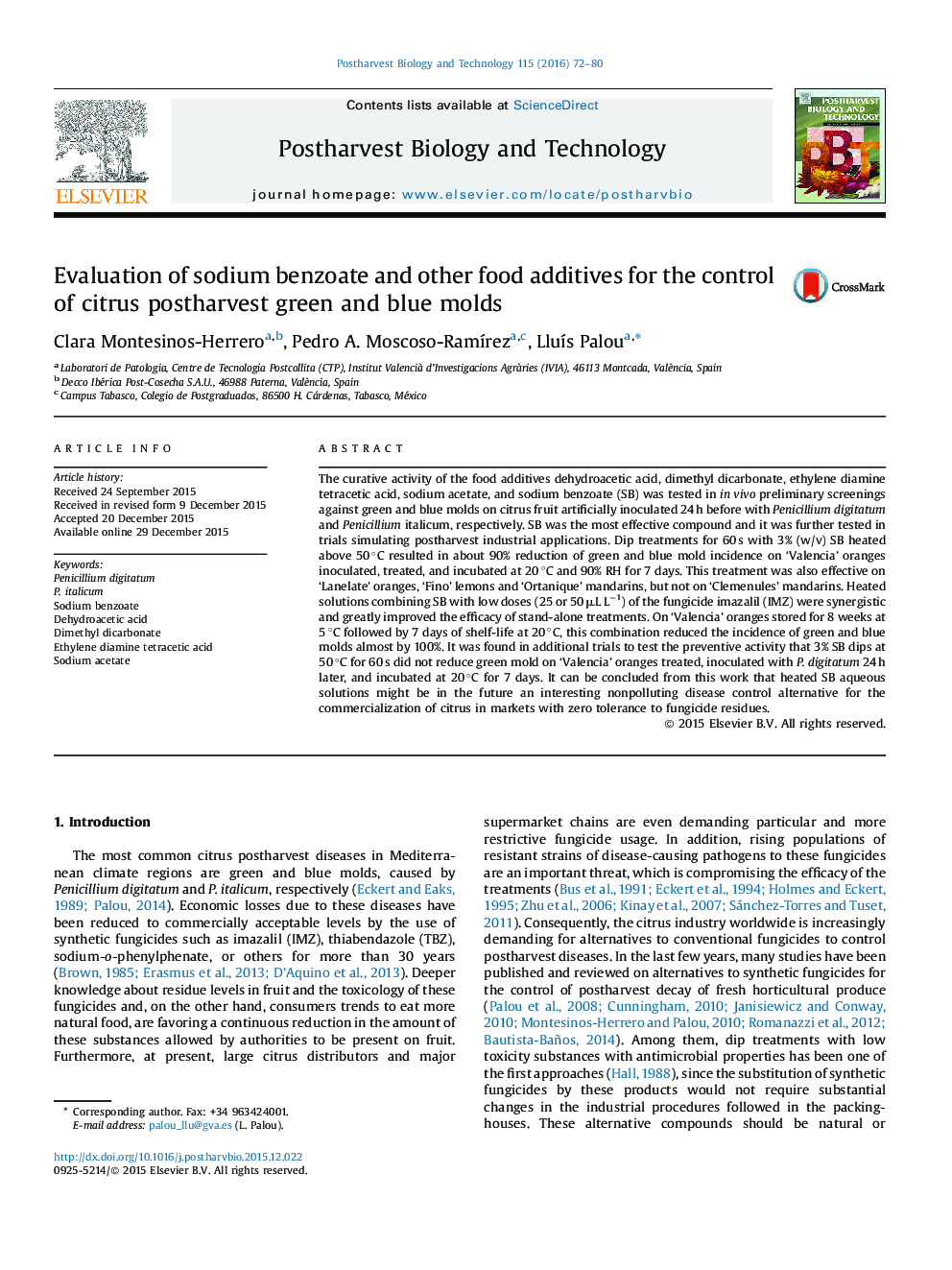| Article ID | Journal | Published Year | Pages | File Type |
|---|---|---|---|---|
| 4517772 | Postharvest Biology and Technology | 2016 | 9 Pages |
•Green and blue molds were effectively controlled by sodium benzoate (SB) treatments.•SB was more effective than DMDC, EDTA, NaDHA, and NaAc.•Dips of 3% SB at 50 °C for 60 s showed curative activity on different citrus cultivars.•SB was compatible and synergistic with low doses of the fungicide imazalil.•SB controlled disease more effectively on oranges than mandarins.
The curative activity of the food additives dehydroacetic acid, dimethyl dicarbonate, ethylene diamine tetracetic acid, sodium acetate, and sodium benzoate (SB) was tested in in vivo preliminary screenings against green and blue molds on citrus fruit artificially inoculated 24 h before with Penicillium digitatum and Penicillium italicum, respectively. SB was the most effective compound and it was further tested in trials simulating postharvest industrial applications. Dip treatments for 60 s with 3% (w/v) SB heated above 50 °C resulted in about 90% reduction of green and blue mold incidence on ‘Valencia’ oranges inoculated, treated, and incubated at 20 °C and 90% RH for 7 days. This treatment was also effective on ‘Lanelate’ oranges, ‘Fino’ lemons and ‘Ortanique’ mandarins, but not on ‘Clemenules’ mandarins. Heated solutions combining SB with low doses (25 or 50 μL L−1) of the fungicide imazalil (IMZ) were synergistic and greatly improved the efficacy of stand-alone treatments. On ‘Valencia’ oranges stored for 8 weeks at 5 °C followed by 7 days of shelf-life at 20 °C, this combination reduced the incidence of green and blue molds almost by 100%. It was found in additional trials to test the preventive activity that 3% SB dips at 50 °C for 60 s did not reduce green mold on ‘Valencia’ oranges treated, inoculated with P. digitatum 24 h later, and incubated at 20 °C for 7 days. It can be concluded from this work that heated SB aqueous solutions might be in the future an interesting nonpolluting disease control alternative for the commercialization of citrus in markets with zero tolerance to fungicide residues.
